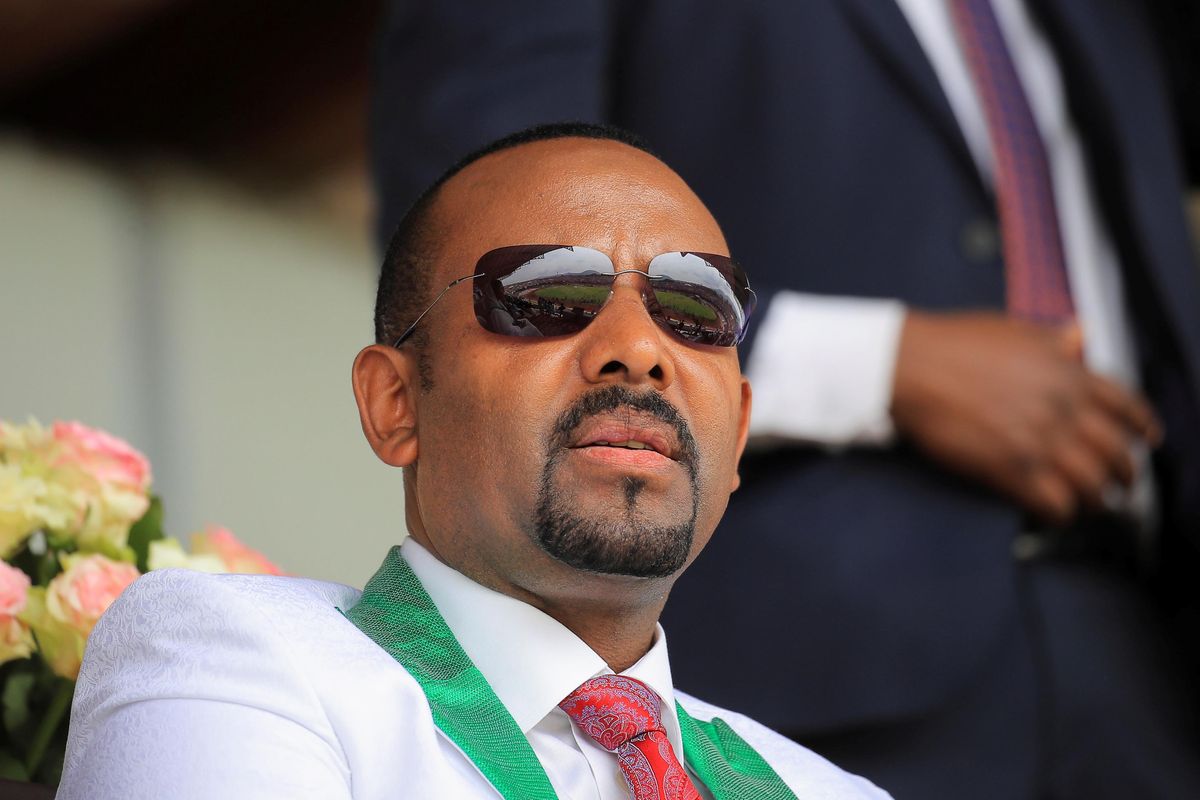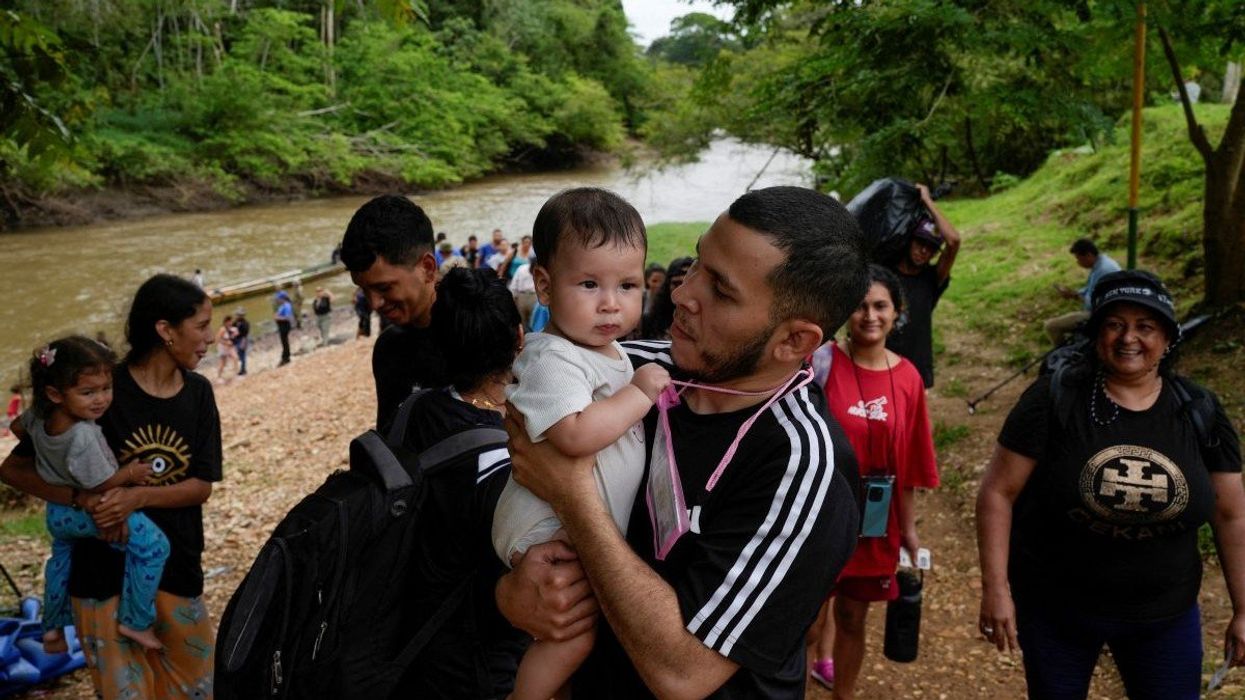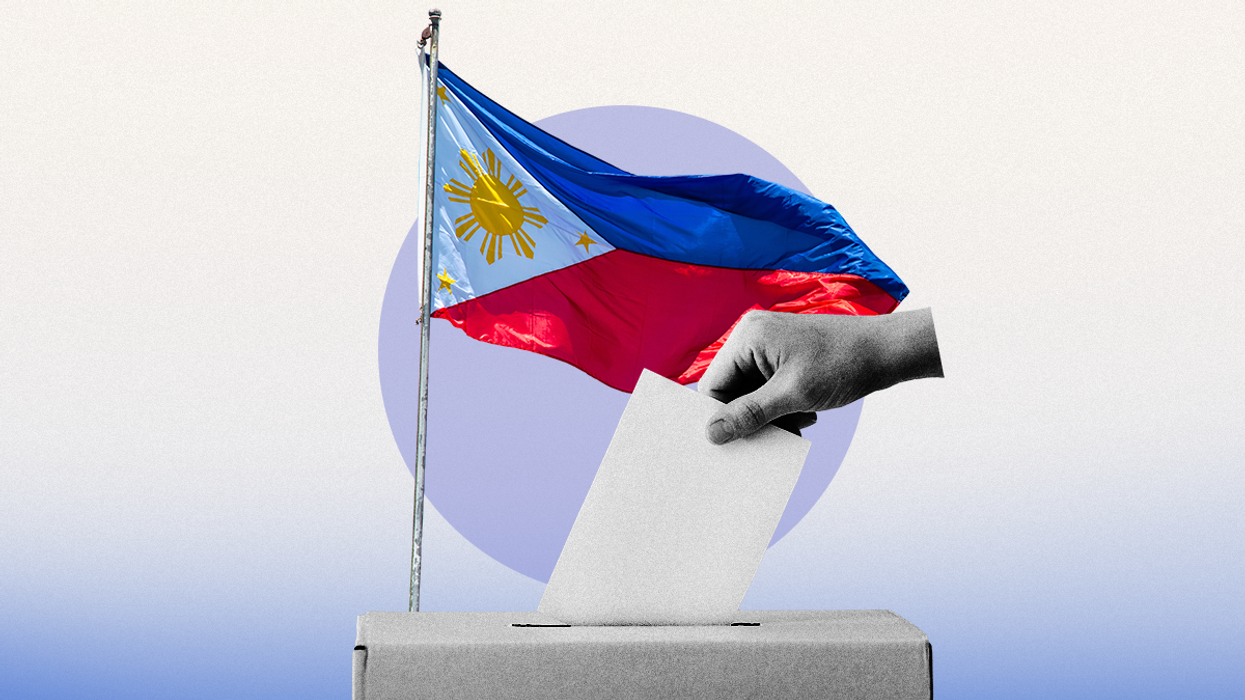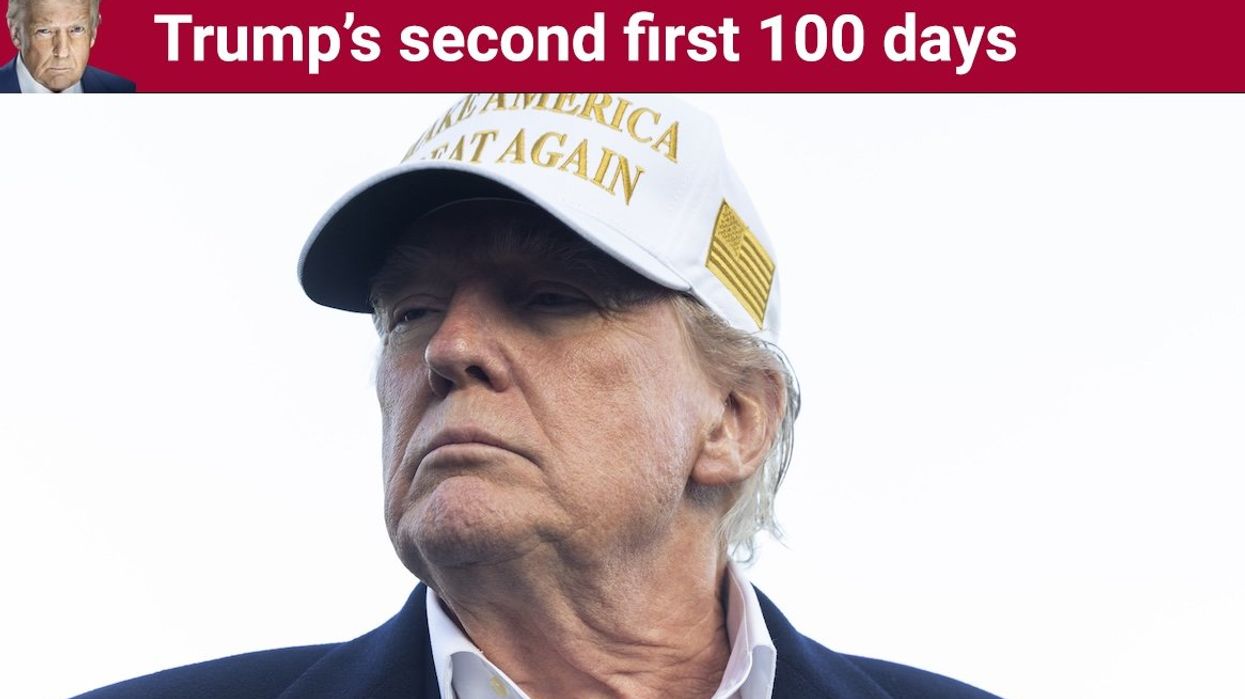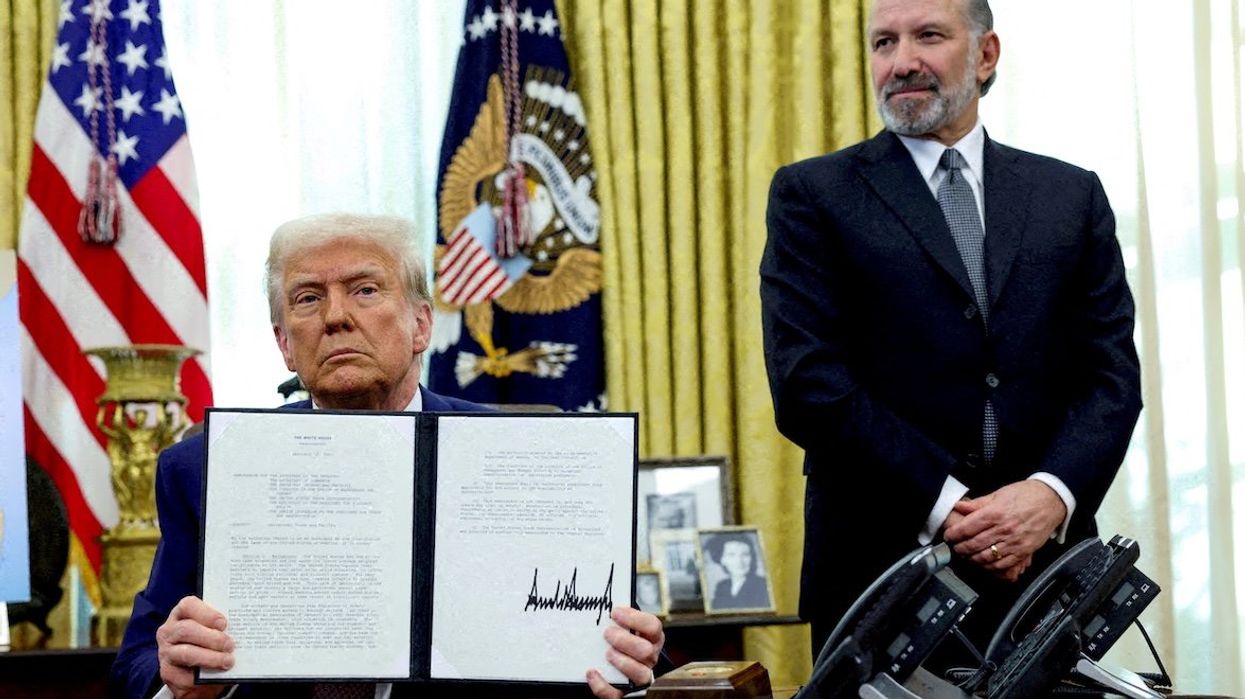The ballots are still being counted in Ethiopia's national elections, which were held on June 21. The vote marks the first time that Prime Minister Abiy Ahmed has faced voters directly since coming to power in 2018, when mass protests ousted his predecessor.
Early in his term, Abiy was lauded for liberalizing the economy, freeing political prisoners, and ending a decades-long war with neighboring Eritrea. But he also has struggled to contain rising ethnic tensions: since November, Ethiopian forces have been warring with local militants in the region of Tigray.
International aid groups have warned of famine there and accused Abiy's forces of war crimes. Tigray did not participate in the election, and many opposition groups boycotted it.
To help us understand what the vote means for Ethiopia, Tigray, and the wider region, we spoke with Connor Vasey, the lead Ethiopia analyst at Eurasia Group.
So, who is going to win this election?
The ruling Prosperity Party is in the strongest position by far, and will likely reconfirm Abiy Ahmed as the country's Prime Minister. Ethiopia's opposition is for the most part fragmented and weak, and at the national level has largely failed to sell a better narrative than the government's. Meanwhile the PP enjoys all the benefits of incumbency: that is, a pervasive government presence right down to the village level. And boycotts by some opposition parties and the detention of key opposition parties and leaders has limited the competition the government faces.
Briefly, who boycotted this election and why?
Major parties like the Oromo Liberation Front, Oromo Federalist Congress and Ogaden National Liberation Front pulled out of the ballot earlier this year. They pointed to arbitrary arrests of their leaders and supporters, forced closures of party offices, and unwillingness by electoral staff to register some of their candidates.
Will Abiy's victory be seen as legitimate?
Yes and no. This election was certainly a step up from previous years in terms of opposition space and the independence of the electoral commission. And we'll likely see an elected opposition in parliament for the first time in more than a decade. That alone will be enough to 'redeem' Abiy for some Ethiopians.
On the other hand, the parties given the most room to campaign are viewed as close to or at least ideologically aligned with the government on key issues. This, combined with opposition boycotts by parties that have huge influence in some regions, will make millions of voters feel that the options on the table did not accurately reflect the 'political spirit' of their communities.
And, of course, there are many people who have been unable to cast their vote yet. Logistical and security challenges forced the electoral commission to delay voting for dozens of parliamentary seats until the fall. This included the entire Somali and Harari regions, as well as pockets across the country.
As for Tigray's 38 seats, no news on when voting would be feasible.
All in all, voters more sympathetic to Abiy will likely be content with how the election proceeded. But it will not convince those looking for reasons to challenge his legitimacy, and that will continue to underpin some of the instability we see today.
Tell us about Tigray. What does this election result mean for the ongoing conflict there?
Very little. The heart of the conflict there is about political power distribution, federalism, concerns over minority protections, and rights to self-determination. All of these are still at play, regardless of the election. Recently the violence has gotten worse and each side's conditions for dialogue are still untenably high. Though there are competing demands on both sides, the Tigrayan leadership wants a return to the pre-war status quo while Addis wants them arrested and a more cooperative administration installed.
On June 28, even as votes were still being counted, government forces withdrew from the Tigrayan capital and declared a ceasefire — is there any connection? And what happens next in Tigray?
Well, Abiy's election campaign relied in part on alliances with other political leaders who strongly supported the government's campaign in Tigray — so now that the election is done, he may feel a little freer to open up a dialogue with the Tigrayans. Still, the main reason for the ceasefire is probably the military situation on the ground: in recent days, the Tigray Defense Force made significant gains, particularly to the northwest of Mekelle, the Tigrayan capital. Ethiopian forces were losing ground fast.
In terms of what's next, the ceasefire is expected to last through the summer planting season, which ends in September. It will open the door to some very difficult, stop-start talks. One thing in particular to watch is how outside players like Eritrea react to the ceasefire and any talks.
The US and Europe have downgraded ties with Addis Ababa over the Tigray war. Is that likely to affect things?
It initially helped to improve humanitarian and media access to Tigray, which has brought more transparency to the conflict. The government's admission that Eritrean troops are present in Tigray came as a result of significant international pressure, for example.
But Western calls for unilateral ceasefires and an inclusive national dialogue are aiming too high at the moment. As mentioned before, the drivers of the conflict remain completely unresolved.
Likewise, Addis Ababa is clearly aware that some western governments worry about losing access to Abiy if they press him too hard. Ethiopia is an important player in the wider East African and Middle East security landscape.
Lastly, Ethiopia has friends elsewhere – Russia, China, Turkey – which have defended the government's 'right' to non-interference in its domestic affairs. Where the Europeans and Americans have, for example, restricted their financial support to Ethiopia, both China and Russia have stepped up to offer assistance in rehabilitating Tigray. So western partners would also be reluctant to take action which could further destabilize an already shaky Ethiopia or cede influence to their rivals. And Addis knows that.
When Abiy came to power, in some ways he seemed to pull the lid off of long-simmering ethnic tensions. Is Ethiopia as a unified, multi-ethnic state still... viable?
Fault lines in Ethiopia are cross-cutting: religion, class, culture, different versions of history and, yes, ethnicity. In fact, the protests that brought Abiy to power in 2018 were about some of these issues. And as you point out, these issues predate Abiy's premiership, but some of them have gained fresh momentum since he took office in 2018.
But, interestingly, when you discount Tigray, Ethiopia has seen comparably high levels of instability before and has remained intact. Say, between 2010-12 when unrest in the Somali Region and within Muslim communities was extreme.
That said, Tigray has undoubtedly become a rallying point for bigger questions about Ethiopia's future. Particularly for those concerned about potential constitutional changes that could rework Ethiopia's regional structure: there's concern that this could on the one hand undermine the country's smaller ethnic groups, while also pitting larger groups against one another. How well Abiy navigates that process will determine the viability of Ethiopia as a multi-ethnic state.
How does a crisis in Ethiopia reverberate into the world beyond?
Ethiopia is the Horn of Africa's hegemon — a mantle that, say, neighboring Kenya never really rose to take on. Ethiopia has been a key actor in peacekeeping or counter-terrorism missions in Somalia, Sudan, and South Sudan, and has participated in the political transitions of all three.
Because of its influence and willingness to collaborate it has — for better or worse — become an anchor state for international partners seeking to engage with the Horn of Africa.
But of course, current events are challenging countries' view of Ethiopia as a reliable partner in the region. If there is instability or isolation in Ethiopia, it would bode poorly for resolving key regional issues like Ethiopia's border dispute with Sudan, or the Grand Ethiopian Renaissance Dam dispute with downstream partners on the Nile.
Finally, given its sheer size — 115 million people — Ethiopia's neighbors in the Horn and across the Mediterranean will rightly worry about what an unstable Ethiopia could mean for migration flows.
Anything else that I haven't asked that you think is an important angle here?
Well one thing is that with the election done, the government will now want to move ahead with pre-existing plans for a constitutional reform process.
That could entail some pretty radical changes to how Ethiopia's regions are organized and how Ethiopians choose their leaders. This is in fact a far more serious arena of political contestation than the election was, and it will serve as a vehicle for different groups to advance their interests.
The road there, the amendment process, and the final product are all potential flash points. Don't expect that headline within the next few weeks, but when it drops you should pay attention.
OK one last thing, can't resist: what's your favorite Ethiopian dish?
I'm embarrassed to admit in front of our climate team, but as a South African I am a big carnivore. So gored gored is my favorite — spiced and marinated cubes of raw beef!
That is hardcore, man. We're over here with the sega tibs. Thanks for your insight on all this. Cheers.
